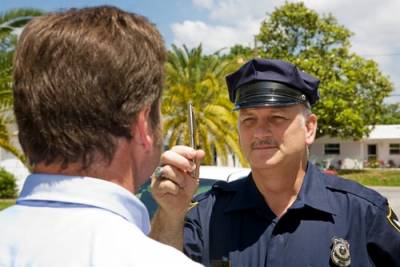What Happens if You Refuse to Take Field Sobriety Tests in Texas?
 In Texas, the charges of driving while intoxicated (DWI) are considered very seriously by the courts, and penalties for a conviction are significant. One of the most common ways drivers are arrested for DWI is being stopped by some other traffic violation when the officer suspects they have been drinking. The officer will then proceed with a breathalyzer test and field sobriety tests, which the driver will fail.
In Texas, the charges of driving while intoxicated (DWI) are considered very seriously by the courts, and penalties for a conviction are significant. One of the most common ways drivers are arrested for DWI is being stopped by some other traffic violation when the officer suspects they have been drinking. The officer will then proceed with a breathalyzer test and field sobriety tests, which the driver will fail.
While the state of Texas does require drivers to submit to a breathalyzer test (or face serious consequences for refusing), the law does not require drivers to submit to field sobriety tests.
Field Sobriety Tests
There are several types of field sobriety tests that law enforcement use when they suspect a driver has been drinking:
- Horizontal Gaze Nystagmus – Horizontal gaze nystagmus is when a person’s eyeball involuntarily jerks when the eyes are rotated in a certain way. When a person is intoxicated, the jerking occurs at lesser angles and is more exaggerated. For this test, the officer will ask the driver to follow a pen or flashlight as it is moved from side to side.
- Walk-And-Turn Test – For this test, the officer asks the driver to walk heel-to-toe, in a straight line, for nine steps and then turn around on one foot and return, doing the same thing. The officer will be looking to see how well the driver can follow directions, how well their balance is, and if they perform the test correctly.
- One-Leg Stand Test – Again looking to see how well the driver can balance themselves, the officer will ask the driver to stand on one foot, with the other foot about six inches from the ground. The driver is then directed to count upwards from 1,001 until the officer tells the driver to stop. This test lasts for about 30 seconds.
Subjective Results
As you can see, each of the three standard field sobriety tests are subjective. There is no black and white result for any of the tests but instead depends on the officer’s interpretation of how well or poorly the driver performed each one.
Additionally, many people who have not consumed any alcohol may have difficulty performing any of these actions, especially if they have physical limitations or other health issues that may not be obvious to the officer but that prevent them from completing the tests as directed.
Failing Field Sobriety Tests
Unlike breathalyzer tests, which fall under Texas implied consent laws, field sobriety tests do not. In fact, these tests qualify as a search under the Fourth Amendment, so a person faces no penalties if they refuse to participate.
However, if a driver does consent and fails one or more field sobriety tests, those results can be used against them by the prosecutor as evidence that they were legally intoxicated at the time of their arrest.
Call a Denton County Defense Attorney for Legal Assistance
If you have been charged with DWI, do not try to defend against these charges without a skilled Cooke County DWI defense lawyer advocating for you and protecting your rights. Call Magaña & Van Dyke at 940-382-1976 to schedule a free consultation and find out what legal options you may have.
Source:
https://www.verywellmind.com/field-sobriety-test-67159






